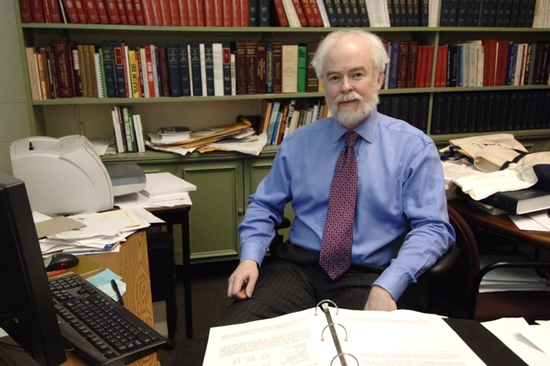Will Net Neutrality Bite the Dust?
Comcast, the FCC, your Web connection

“Net neutrality” is said to be the Internet’s version of “all Web traffic is created equal.” Under this approach, Internet service providers treat all data sources the same; all Web sites appear on your computer screen, quickly, when you type in their address. But some cable and phone companies are pondering a different arrangement, one where users would subscribe to either fast or slow lanes.
The idea was tested three years ago, in a disingenuous way, when Comcast deliberately slowed delivery to people using peer-to-peer file-sharing services. When consumers complained, the Federal Communications Commission sanctioned the cable giant, to the great delight of net-neutral advocates. On April 6, however, a federal appeals court ruled that in slapping down Comcast, the FCC had overstepped its authority. The court ruling, which allows Internet providers to slow or block certain Web sites, appears to put in jeopardy the coveted principle of net neutrality.
To find out what it really means, BU Today spoke with T. Barton Carter (COM’78), a lawyer as well as a College of Communication professor of communication and chairman of the department of mass communication, advertising, and public relations and a School of Law professor of law.
BU Today: Is the appeals court decision a good one?
Carter: Legally, yes. It’s the decision most of us expected. The FCC, because there’s no direct jurisdiction granted them, had to argue that what they’re doing is pursuant to something else they do.
The policy is a different story. The decision severely limits the FCC’s ability to regulate Internet broadband providers. It means they can’t do anything to preserve net neutrality.
In the Comcast case, what types of information were people using peer-to-peer file-sharing services getting from such services, like BitTorrent?
It could be anything. A lot of people use it for illegal file downloading. But NBC uses it to transmit movies. AP, when Comcast said they weren’t interfering with it, did a test and used the King James Bible. It’s hard to argue the copyright’s still valid there.
Comcast’s argument is that when people use it for large files it degrades the service for others, who get slowed-down service. It obviously begs the question: how about building a bigger network? Or why not do it in an aboveboard manner and tell people that large files will be slowed up, instead of having it appear as if there’s a connection problem. Or why not go to different pricing structures: X amount for your base price, and you pay more for service above that, like cell phone minutes.
Should Congress give the FCC regulatory power in this area?
Definitely — they need to have some. You may not have the monopoly era, like you did with the phone company before it was broken up, but how many options do you have for broadband access in most parts of the country? Where I am, I can get Comcast or DSL from Verizon. I don’t have a lot of options.
The FCC should be able to prevent practices that take advantage of a monopoly or semimonopoly. On the other hand, some people have said that companies should never be able to discriminate based on content. Does that apply to viruses or spam? There’s some discrimination we would encourage. It is a complex issue. I don’t believe either side is 100 percent right.
Comcast and the other providers claim they are not currently impeding or blocking Web content.
They claimed that before, until somebody proved that they were doing it.
Didn’t Comcast say it was going to stop impeding the flow while appealing the FCC’s citing?
The actions you take when you’ve been ordered by the FCC to do something and the actions you take when you find out they have no authority might be different. Are you as likely to speed with a cop’s car by the highway as you are when there’s nobody in sight?
What about innovation? One analyst said that without net neutrality 15 years ago, we never would have had Google or eBay.
I’m not sure I buy that. One of the problems of regulating this area is that the technology is changing so fast that what makes perfect sense today is insane tomorrow. You have to depend on granting authority with broad principles so the FCC can adapt as it goes along. The only other way the FCC can get jurisdiction is to redefine Internet access as a “common carrier.”
You mean like phone service. Is that a good idea?
Not necessarily, because that brings in excessive regulation. But if Congress doesn’t do anything, it wouldn’t surprise me if the FCC took some approach along those lines.
How will this decision affect BU students?
Short-term, very little. Most of them aren’t using Comcast. Also, the odds are that Comcast isn’t going to come out next week and go wild. You want to make sure Congress does do something? Do something bad now.
Rich Barlow can be reached at barlowr@bu.edu.
Comments & Discussion
Boston University moderates comments to facilitate an informed, substantive, civil conversation. Abusive, profane, self-promotional, misleading, incoherent or off-topic comments will be rejected. Moderators are staffed during regular business hours (EST) and can only accept comments written in English. Statistics or facts must include a citation or a link to the citation.